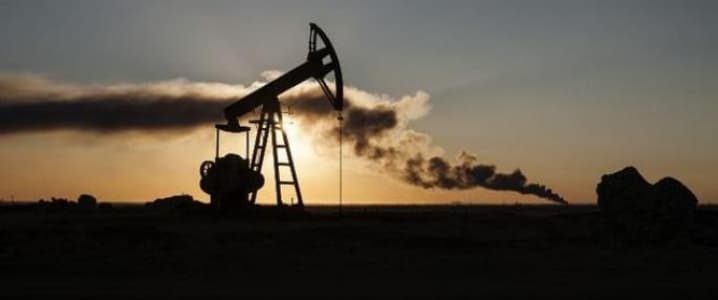Libya will be increasing oil output by a third in the near future – bringing national production to 900,000 barrels per day, according to spokesperson Ashraf Ali of the Presidential Council of the Libyan Government of National Accord.
Ali’s comments to the Tunisian Arab Presse come as the Libyan National Army (LNA) from the state’s eastern government report thwarting an attack near the country’s major oil ports last Wednesday – signaling the renewal of a factional conflict that could cause domestic stability to shatter.
The North African country, once a 1.6-million-barrel exporter of sweet crude, which requires only little refining, has faced an uphill battle rebuilding output since the collapse of its political and civil infrastructure after the 2011 death of dictator Muammar Gaddafi.
Just as a fragile stability from LNA leader General Khalifa Haftar’s handover of Libyan ports to the National Oil Company (NOC) began to emerge over the course of 2016, talks of an OPEC-led production freeze prompted national leaders to protest the country’s subjection to externally imposed output limits.
A four-year civil war and devastating domestic militancy allowed Libya and Nigeria to be granted exemptions from OPEC’s November 30th freeze deal, which limited the bloc’s output at 32.5 million barrels.
But for Libya, good news does not seem to last longer than a news cycle.
Four LNA troops lost their lives and seven were wounded fighting off troops from the Benghazi Defence Brigades (BDB) in Ben Jawad, Gaddafi’s hometown, last week. The village sits 30 kilometers away from the massive Es Sider port, which is currently undergoing renovations as it prepares to return to full functionality in the next few months.
The LNA pushed out the BDB--which, according to The Libya Herald, is a hardline group supported by the anti-Gaddafi Grand Mufti Sadeq Al-Ghariani--from their home turf in Benghazi earlier this year, forcing them to flee to Tripoli. Related: Not So Prolific: U.S. Shale Faces A Reality Check
Haftar’s government has other pent-up rivalries as well.
The past week has seen escalating clashes between the Petroleum Facilities Guard (PFG) and the LNA, with the latter taking over two of Libya’s four main export terminals in the Oil Crescent.
The PFG, which is affiliated with the UN-backed government, is the former master of the terminals, which it used to abuse as a means of extortion. The LNA is loyal to the rival government, the House of Representatives, based in eastern Libya.
There are some serious ideological tensions between the two groups. Earlier this year, the PFG – which regularly picked fights with the Islamic State’s Sirte stronghold before it was recaptured from the extremists – began an offensive against Haftar and his army, under the pretense that the general and ISIS were “two sides of the same coin.” This, despite the fact that Haftar’s forces have been key is fighting back ISIS. Related: A Real Opportunity For An Oil Price Recovery
Signs of renewed conflict between the groups have been long evident. Late last month, Haftar’s spokesman warned, speaking to the media, that PFG forces were gathering around the four ports, planning to retake control of them and that a battle was imminent.
The LNA’s successful takeover of half of the NOC’s ports and defense of the Es Sider port from rival factions suggests opposing forces do not have the prowess to steal back their lost oil market dominance.
As Libya’s oil industry successfully enters the meat of its production recovery, Haftar and the Eastern government will financially benefit from the new revenue streams – which will build on the LNA’s pre-established strength and dominance over other militant groups.
ADVERTISEMENT
More money equals new weapons, reliably paid soldiers and new government services – which the Libyan people are nostalgic for since Gaddafi’s demise. The fallen leader’s approach resembled Saudi Arabia’s current system, in which the royal family hands out wide-ranging subsidies in exchange for political loyalty from its citizenry.
If this system returned under the leadership of Haftar – who served under Gaddafi before turning against him – Libya’s lost quality-of-life may return.
By Zainab Calcuttawala for Oilprice.com
More Top Reads From Oilprice.com:
- The Venezuelan Crisis Continues To Spiral Out Of Control
- The Buying Continues As Non-OPEC Producers Cut Output
- The Bulls Are Back: Oil Spikes As Non-OPEC Pledges 558,000 Bpd Cut


















